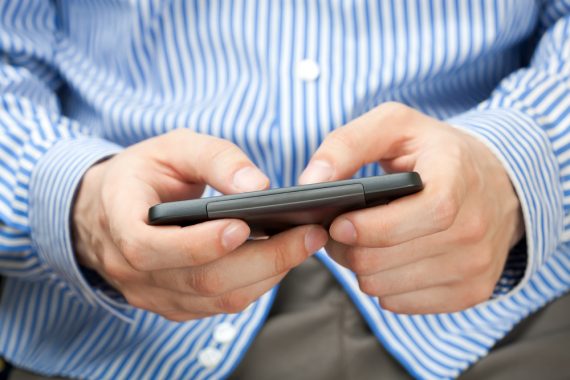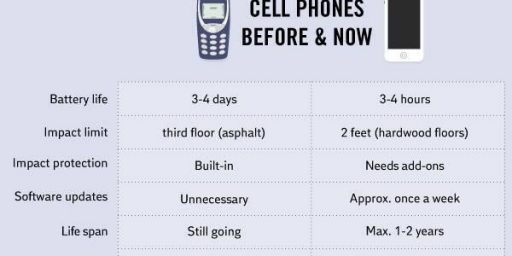Cell Phones Not Used As Phones So Much Anymore
Given the number of things one can do with a smartphone, this is perhaps not suprising:
In 2009, the United States crossed a digital Rubicon: For the first time, the amount of data sent with mobile devices exceeded the sum of transmitted voice data. The shift was heralded in tech circles with prophetic fury: “The phone call is dead,” pronounced a blogger at the Web site TechCrunch. Writing in Wired, journalist Clive Thompson observed, “This generation doesn’t make phone calls, because everyone is in constant, lightweight contact in so many other ways: texting, chatting, and social network messaging.” And the online news network True/Slant declared a paradox: “We’re well on our way to becoming an incredibly disconnected connected society.”
(…)
Even as the number of wireless connections increased from 286 million in 2009 to 303 million in 2010, voice usage on those phones decreased. And our calls are getting shorter. While in 2003 the average local mobile phone call lasted a leisurely three minutes, by 2010 it had been trimmed to a terse one minute and 47 seconds.
There are plenty of reasons for this, of course. Communication via text message, email, or Twitter is typically easier, faster, and more convenient that a phone call. Additionally, those methods of communication give one the option of responding at one’s leisure rather than being sucked into a phone call who’s end time is indeterminate (we’ve all, I think, got that relative or friend who never seems to get the hint that you need to end a phone call). There’s also the privacy factor. I can sit in a crowded room and conduct a text-message conversation with someone with little worry that someone will learn what we’re talking about. You can’t say the same thing about a phone.
One wonders if things will change now that the iPhone, and most Android devices, have front-facing video cameras that make using a program like Skype easier. Hand-held video conferences behalf? Or will continue retreating in to the world of text-based communication?
Via Andrew Sullivan
Young Adult Using Smart Phone image via Shutterstock







Does talking to Siri count?
@Dough
Too true. Calling someone without warning feels like walking into a party where they’re hanging out on the other side of the room, and shouting at them to get their attention until they either respond or you give up.